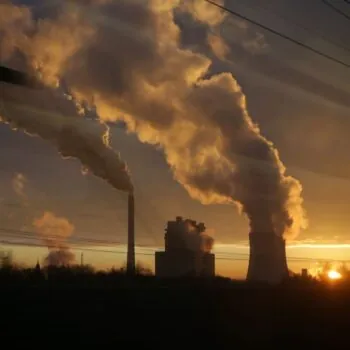Friday, September 20th was high noon for German climate politics in 2019. Following intense negotiations, the German government has agreed on a set of climate policies with the aim of reaching the country’s 2030 emission reduction targets. The existence of this policy package and its overall architecture are a step forward for German climate policy. However, the specific measures are insufficient to achieve the government’s own climate targets and fall far short of political expectations during a time of unprecedented societal demand for ambitious climate action.
At a time in which Germany’s domestic climate policy affects its potential to drive international climate action, the government’s proposal should worry international observers – despite the rhetoric, former “climate chancellor” Merkel has not returned to the international stage, as we explain in detail in our latest E3G briefing [LINK]. To regain its former role as a frontrunner in international climate politics, the German government must improve its climate package significantly ahead of COP25 in December.
2020 will be a crucial year for climate ambition. Former German Minister and incoming Commission President Ursula von der Leyen will roll out her climate agenda for the EU and Germany will hold the EU Council Presidency during the second half of the year, thus leading the EU’s work during the important COP26 summit in December 2020 and hosting a high-level EU-China summit ahead of COP26. Furthermore, Germany must act decisively to prevent a backsliding on climate and other commitments at the 2020 G7 Summit in the USA and G20 Summit in Saudi-Arabia. Given these events and a context of unstable geopolitics and fragmentation in Western alliances, Germany must play a stronger role in international multilateral politics in defence of a global rules-based system, particularly on tackling the climate crisis. Importantly, Germany must assume an ever-stronger leadership role in a post-Brexit Europe to beat the path towards a European net zero emissions economy by 2050 at the very latest.
At the UN Climate Action Summit this week, Chancellor Merkel sought to re-establish her reputation as “climate chancellor” on the international stage, but the proposed policies are not enough to justify an international climate leadership role for Germany, as was recognised by observers. Over the coming years, the importance of real economy progress on climate measures will further increase, and Germany will no longer be able to lead internationally without also delivering domestically. Germany’s domestic measures are closely watched in other countries when designing climate policies: for example, the Czech Republic recently set up a “Coal Commission” modelled on the German Coal Commission. Germany also has significant leverage on climate policy in the EU, and the German government’s actions will have major impacts on incoming Commission President von der Leyen’s chances to realize her ambitious climate agenda. Germany’s support for the EU’s target of net zero emissions by 2050 was a major step towards the (still pending) adoption of that goal, and the government is playing an important role in the negotiations with the countries that are still reluctant.
This shows that Germany plays a large role in defining how industrialized countries can implement climate policies. However, despite the climate package establishing an important governance mechanism by including annual, legally binding sectoral emission reduction targets and setting up an independent committee tasked with reviewing sectoral progress, initial analysis suggests that the package is barely ambitious enough to close one-third of the gap to the domestic 2030 emissions reduction target. Overall, the announced climate package costs €54 billion until 2023 which includes investments in all economic sectors. The effectiveness of specific measures however must be detailed out in coming months.
In the last weeks, the public debate focused on the introduction of a carbon price in the underperforming transport and buildings sectors. The carbon price, at initially €10 per ton, is extremely low and will likely not have a significant steering effect (experts suggested an initial price of €50 per ton), and newly introduced measures such as a minimum distance of 1000 meters between wind turbines and houses will further challenge Germany’s stalling domestic energy transition. This sentiment is shared by a remarkably wide range of stakeholders who have criticized the package, including research institutes, industry organizations, trade unions, and environmental NGOs.
Over the coming months, the government proposal will be translated into a more detailed plan, which then must be passed by both the Federal Parliament and the Federal Council. Furthermore, it remains possible that the strong criticism provoked by the proposal might deepen existing rifts between the governing Conservatives and Social Democrats, especially over the course of the Social Democrats’ current leadership elections. Most candidates for the leadership have rejected the package as being not ambitious enough. The SPD party convention in December will also vote on whether to continue the coalition, and climate policy will likely become a major issue in this decision.
The climate package does not sketch out a pathway towards net-zero emissions by 2050 and can only be a first step in a long process of transformative change of the German economy. The coming months will provide decisive answers to the question of whether Merkel can build a legacy as “Climate Chancellor”, and whether Germany can remain a credible leader on climate action on the international level in the global efforts to limit global warming to 1.5 degrees.


